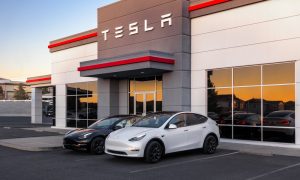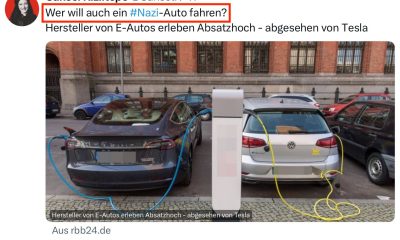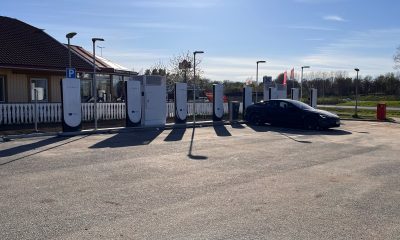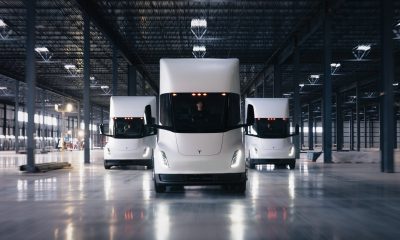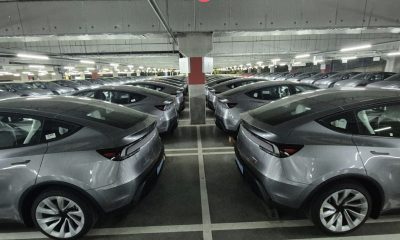News
Tesla’s vehicles led U.S. EV sales again last quarter: report
Tesla, Ford, and Chevrolet’s models led the pack in Q1, while more new EVs hit the road than ever.
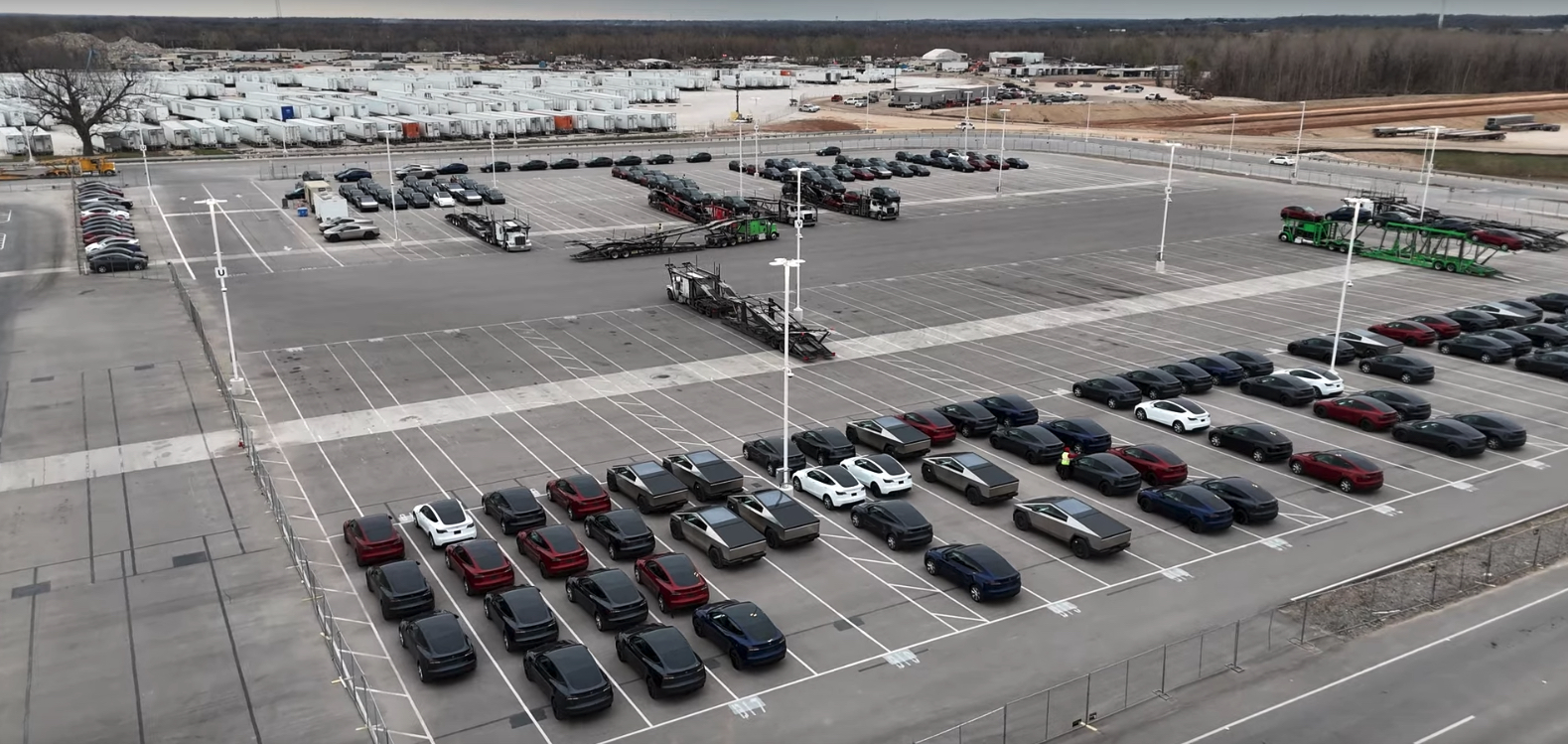
Recent data has shown that Tesla’s Model Y and Model 3 remained the top-selling electric vehicle (EV) models in the U.S. in the first quarter, despite a decline in overall sales in the market.
As detailed in the latest Kelley Blue Book EV sales report, shared by Cox Automotive on Thursday, Tesla’s Model Y and Model 3 outsold the next several models combined during the first quarter, while the Cybertruck was the tenth best-selling EV overall.
Tesla sold 64,051 Model Y units, representing a 33.8 percent drop year over year, along with selling 52,520 Model 3 units, marking a 70.3 percent increase year over year, to outpace the next several models combined. The Tesla Cybertruck sold 6,406 units, while the Model S and X sold 1,280 and 3,843 units, respectively.
Tesla also launched a new version of the Model Y in the first quarter, likely explaining at least a part of the decline, though the brand also faces continued pressure from the public, as many have targeted stores and vehicles in protesting Elon Musk and the Trump administration.
Meanwhile, the Ford Mustang Mach-E, the Chevy Equinox EV, and the Honda Prologue followed and made up the rest of the top five, with 11,607, 10,329, and 9,561 units sold, respectively. A number of models were also introduced to the market last year, such as the Porsche Macan, the VW ID.Buzz, and Volvo’s EX30 and EX90 models. Honda and Acura also added over 14,000 EVs to U.S. roads, marking an increase from having no products in Q1 2024.
Additionally, many models such as the Chevy Equinox EV, the Honda Prologue, and the VW ID.4 all climbed in the rankings from the full-year 2024 EV sales list, and it will be interesting to see how these and other emerging models hold as the year rolls on.
Cox also points out that Tesla’s overall sales were down 8.6 percent from last year’s first quarter, while General Motors (GM) sold over 30,000 EVs across its brands to lead the sector in sales growth.
See the full list of BEVs sold below, as ranked by volume. You can also check out the full Q1 EV sales data from Cox Automotive here, or read the firm’s press release on the report here.
READ MORE ON U.S. EV SALES: Tesla average transaction prices (ATP) rise in March 2025: Cox Automotive
EV models sold in the U.S. in Q1 2025, ranked by volume
- Tesla Model Y: 64,051
- Tesla Model 3: 52,520
- Ford Mustang Mach-E: 11,607
- Chevrolet Equinox EV: 10,329
- Honda Prologue: 9,561
- Hyundai Ioniq 5: 8,611
- VW ID.4: 7,663
- Ford F-150 Lightning: 7,187
- BMW i4: 7,125
- Tesla Cybertruck: 6,406
- Chevrolet Blazer EV: 6,187
- Toyota BZ4X: 5,610
- Rivian R1S: 5,357
- Cadillac Lyriq: 4,300
- Acura ZDX: 4,813
- Nissan Ariya: 4,148
- Tesla Model X: 3,843
- Ford E-Transit and Kia EV9 (tied): 3,756
- Kia EV6: 3,738
- BMW iX: 3,626
- GMC Hummer Truck/SUV: 3,479
- Porsche Macan: 3,339
- Hyundai Ioniq 6: 3,318
- Audi Q6 e-tron: 3,246
- Subaru Solterra: 3,131
- Chevrolet Silverado: 2,383
- Jeep Wagoneer EV: 2,595
- Nissan Leaf: 2,323
- Dodge Charger EV: 1,947
- Rivian R1T: 1,727
- Cadillac Escalade EV: 1,956
- VW ID.Buzz: 1,901
- BMW i5: 1,899
- Audi Q4 e-tron: 1,874
- Mercedes EQB: 1,622
- Cadillac Optiq: 1,716
- Rivian EDV500/700: 1,469
- Lexus RZ: 1,453
- Tesla Model S: 1,280
- GMC Sierra EV: 1,249
- Volvo EX30: 1,185
- Kia Niro: 1,162
- Porsche Taycan: 1,019
- Volvo EX90: 1,000
- Hyundai Kona EV: 914
- BMW i7: 888
- Mercedes EQE: 742
- Genesis GV60: 733
- Genesis GV70: 712
- Mini Countryman: 693
- Mercedes EQE: 742
- Audi Q8 e-tron: 535
- Mercedes G-Class and EQS (tied): 509
- Jaguar I-Pace: 381
- Volvo C40: 315
- Chevrolet Brightdrop 400/600: 274
- Audi e-tron: 250
- Volvo XC40: 218
- Mercedes E-Sprinter: 90
- Genesis G80: 51
- Chevrolet Bolt: 13
- Mini Cooper: 3
*Additional EV Models: 5,930
*The additional EV models category is likely made up of low-volume, luxury, and niche EV makers, such as those from Lucid and Polestar. However, at the time of writing, Cox Automotive has not yet responded to Teslarati’s request for comment on which vehicles were excluded.
Top 10 EV sellers by brand in the U.S. in Q1 2025
- Tesla: 128,100
- Ford: 22,500
- Chevrolet: 19,186
- BMW:13,538
- Hyundai: 12,843
- VW: 9,564
- Honda: 9,561
- Kia: 8,656
- Rivian: 8,553
- Cadillac: 7,972
News
These automakers are pushing to overturn California’s gas car ban
This lobbying group represents Detroit’s Big Three automakers, as well as several others selling vehicles in the U.S.
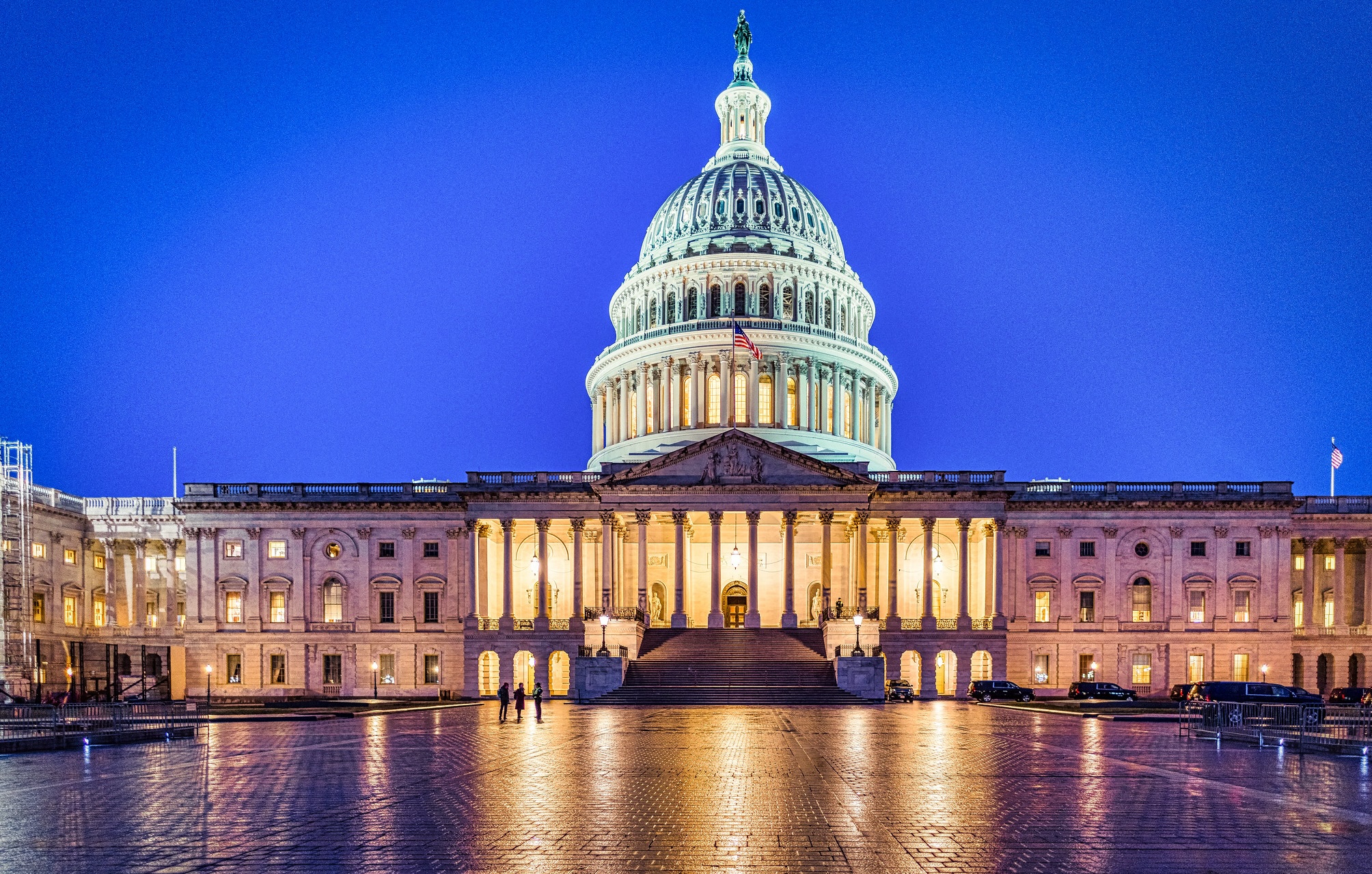
A lobbying group made up of several automakers is pushing Congress to ban California’s plan to phase out and ban new gas car sales altogether by 2035, ahead of a vote that could also affect the 11 other states that have followed with similar plans.
The Alliance for Automotive Innovation (AAI), an organization representing the interests of Ford, General Motors (GM), Stellantis, Toyota, Volkswagen, Hyundai, and several others, recently sent a letter to Congress requesting that it overturn a waiver granted to California letting it set its own emissions rules.
Later this week, the U.S. House of Representatives will vote on overturning the waiver granted to California under the 1968 Clean Air Act to impose the tightened standards, according to Reuters. In the previous letter, the AAI argued to Congress that automakers would be “forced to substantially reduce the number of overall vehicles for sale to inflate their proportion of electric vehicle sales,” adding that it would also boost prices and reduce competition in the market.
The waiver, enacted under the Biden administration’s Environmental Protection Agency (EPA), allows California to mandate at least 80 percent electric vehicle sales by 2035 under the Clean Air Act. The passage of disapproval of the waiver is being ushered under the Congressional Review Act, and an initial vote in the House of Representatives is set to take place on Wednesday.
READ MORE ON STATE EMISSIONS RULES: Tesla could face emissions credit tax in Washington
The U.S. Court of Appeals for the District of Columbia backed the EPA’s decision to grant the waiver last April, following a challenge from 17 Republican-run states. The group claimed that California was being given unconstitutional regulatory power in the decision, adding that other states didn’t have those same powers.
In December, the U.S. Supreme Court agreed to hear out bids from Valero, the AAI, and other groups to oppose the 2035 California gas car sales ban, which would begin phasing them out in 2026 if the waiver remains in place.
You can see the full list of members of the AAI below, including automakers and a handful of other tech companies.
Companies represented by the Alliance for Automotive Innovation (AAI)
Here’s the full list of AAI members, according to the lobbying group’s website:
- AESC
- AISIN
- Aptiv
- Autoliv
- BMW Group
- Bosch
- Denso
- Emergency Safety Solutions
- Ferrari
- Ford
- GM
- Harman
- Honda
- Hyundai
- InEos Automotive
- Infineon
- Isuzu
- Jaguar-Land Rover
- Kia
- LG
- Luminar
- Magna
- Mazda
- McLaren
- Mercedes-Benz
- Mitsubishi Motors
- Nissan
- Nuro
- Panasonic
- Porsche
- Qualcomm
- RV Industry Association
- Samsung
- SiriusXM
- SK On
- Stellantis
- Subaru
- Texas Instruments
- Toyota
- Uber
- VinFast
- Volkswagen
- Volvo
- Zoox
California proposal to allow self-driving tests for heavy-duty trucks
News
Neuralink’s third brain chip patient shares first video edited with BCI
The third Neuralink brain chip patient is the trial’s first patient with ALS and its first non-verbal patient, and he has detailed his experience regaining speech and more.
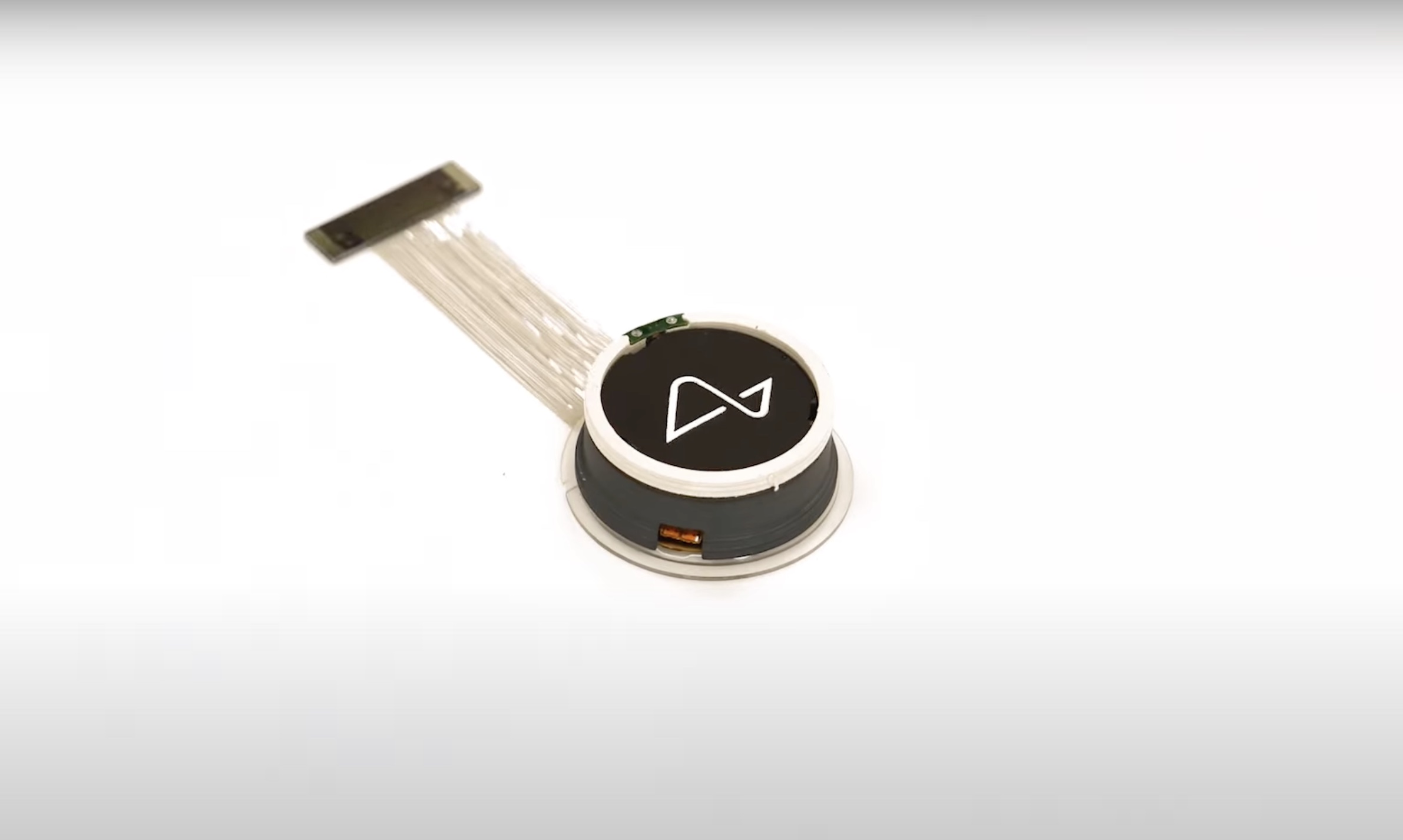
Elon Musk’s Neuralink has officially installed its brain-chip interface (BCI) into a third human patient, and the individual shared a video this week detailing his experiences gaining control of external devices and regaining the ability to talk through the use of AI.
On Monday, X user Bradford G Smith shared a video detailing his experience as the third person in the world to receive the Neuralink BCI, and as the first non-verbal patient and the first with Amyotrophic Lateral Sclerosis (ALS) to receive the implant. In the video, Smith details how the BCI works, how it’s less limiting than his previous eye tracker technology, and how it has literally helped him regain his voice through AI.
“I am typing this with my brain,” Smith wrote. “It is my primary communication.”
The video, which he says is the first edited directly with a BCI, is narrated by an AI-generated version of his old voice. Prior to the BCI, he was also unable to leave the house using his eye tracker, as it made it difficult to communicate unless he was in dark or low-light settings.
The video also shows how he’s able to connect with external devices using the BCI, with a live shots of him controlling his computer using a cursor.
You can see the full update below, which runs a little under 10 minutes.
READ MORE ON NEURALINK: Elon Musk: over 1,000 humans with Neuralink implants in 2026 is feasible
The news follows Neuralink’s initial update with Brad and other initial BCI patients, as was shared in a post on the company’s website in February. In it, Brad also explained how groundbreaking it was to be able to communicate outside and see his son win a robotics award, along with being able to consider leaving the city area for the first time in half a decade:
The most significant thing that happened this week will sound strange to you: I got to use the computer on the porch, and it worked!!
I went to [my child’s] soccer game, and the referee thought I was sleeping. I was actually able to talk outside. I [am] actually thinking about traveling outside the [city] metro [for] the first time in 5 years.
Both of Neuralink’s studies focus on restoring autonomy to people who are paraplegic through the use of external devices. The company gained initial approval from the U.S. Food and Drug Administration (FDA) to install the first BCI in a human patient in May 2023, with Noland Arbaugh being the first, a patient named Alex being the second, and Brad being the third.
Neuralink opened its Patient Registry worldwide earlier this month, allowing participants to submit to take part in the company’s initial PRIME and CONVOY studies. The firm also announced plans to operate the PRIME study out of a second location in Miami, Florida in January, after an initial location was launched in Phoenix, Arizona.
Last week, it was reported by Bloomberg that Neuralink is currently targeting a $500 million funding round at a valuation of $8.5 billion. Meanwhile, Neuralink has also been constructing office buildings near Austin, Texas, which initially aimed to be completed in May 2025.
Elon Musk
Tesla fends off new attack that will hurt consumers more than anyone else
Consumers stand to be hurt the most by a new bill that aims to take away Tesla’s Direct-to-Consumer licensing
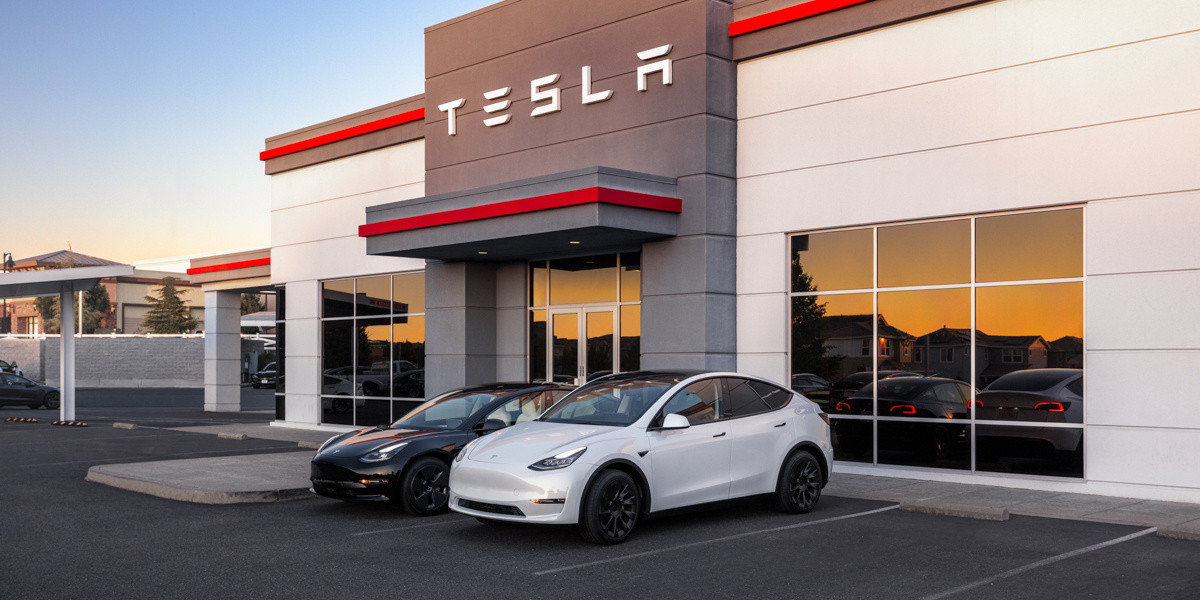
Tesla is likely going to be forced to fend off a new attack that is much different than the petty vandalism, arson, and domestic terrorism it has faced from those who oppose the company and its CEO Elon Musk. It would hurt consumers more than anyone else.
Over the past several months, we have reported numerous instances of vandalism against Tesla. No victim is too big or too small to be a potential target, as everything from keying vehicles to having Molotov cocktails thrown at showrooms is sufficient in the eyes of perpetrators.
However, the latest attack appears to be politically motivated and could hurt Tesla, its consumers, and even other automakers, and it seems to be some form of retaliation against Musk due to his affiliation with President Trump.
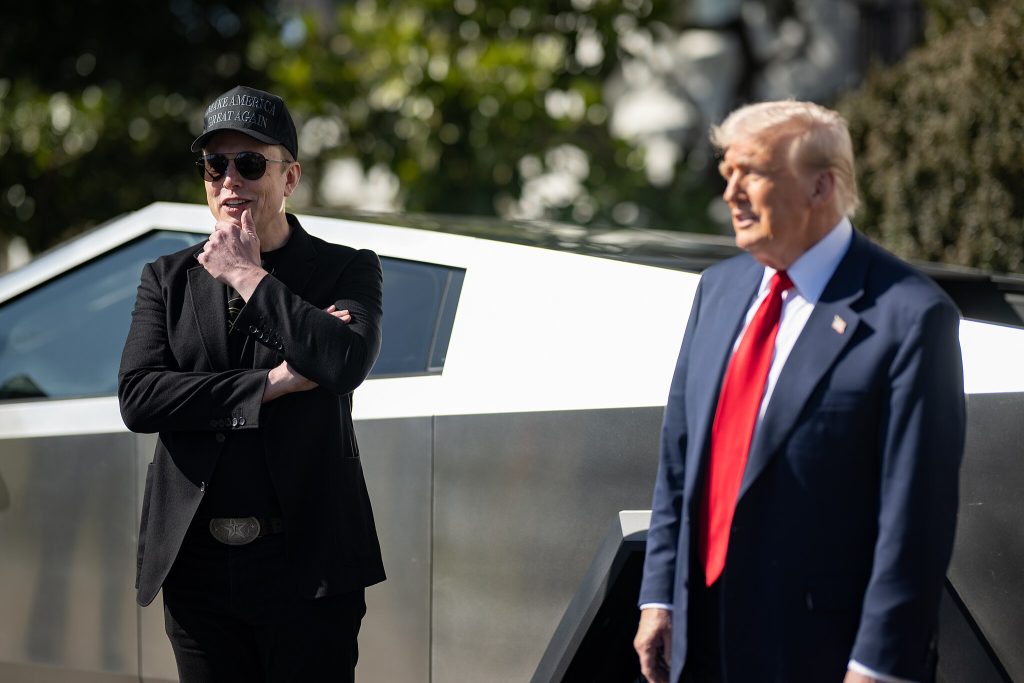
President Donald J. Trump purchases a Tesla on the South Lawn, Tuesday, March 11, 2025. (Official White House Photo by Molly Riley)
Lawmakers in New York state are now attempting to shut down Tesla showrooms in a move that would force the company to sell through dealer franchises, complicating the sales process and making the direct-to-consumer platform the company has used for years obsolete.
The New York Times reported that New York State Sen. Patricia Fahy is one of several lawmakers that is looking to hit Tesla where it hurts the most: its accessible and stress-free showrooms.
The problem is that this will hurt consumers more than Tesla.
Sen. Fahy said in March that the ease-of-sales platform Tesla uses has to be taken “from Elon Musk,” because “he’s part of an effort to go backwards.”
The licenses Tesla uses in the state allow it to sell cars directly to consumers instead of going through the traditional dealership model. These licenses, in Sen. Fahy’s perfect world, would be revoked from Tesla and given to other EV manufacturers. At one time, she was a proponent of Tesla and supported the company operating its D2C sales, stating it would cut emissions.
Now, Sen. Fahy believes Musk’s association with the Trump Administration is counterintuitive, as she says it is “killing all the grant funding for electric vehicle infrastructure, killing wind energy, killing anything that might address climate change.”
She continued by stating:
“The bottom line is, Tesla has lost their right to promote these when they’re part of an administration that wants to go backwards. Elon Musk was handed a privilege here.”
The bill is with the Senate and Assembly Finance committees.
-
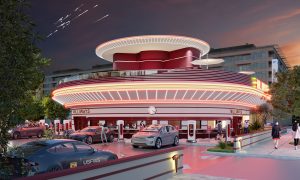
 News1 week ago
News1 week agoTesla’s Hollywood Diner is finally getting close to opening
-

 Elon Musk2 weeks ago
Elon Musk2 weeks agoTesla doubles down on Robotaxi launch date, putting a big bet on its timeline
-
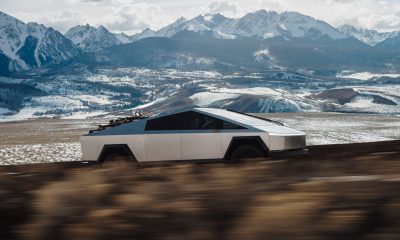
 News4 days ago
News4 days agoTesla is trying to make a statement with its Q2 delivery numbers
-

 News2 weeks ago
News2 weeks agoTesla’s top investor questions ahead of the Q1 2025 earnings call
-

 News2 weeks ago
News2 weeks agoUnderrated Tesla safety feature recognized by China Automotive Research Institute
-
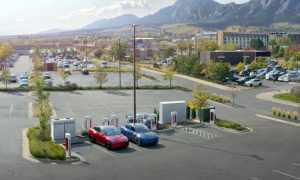
 News2 weeks ago
News2 weeks agoTesla reveals its Q1 Supercharger voting winners, opens next round
-
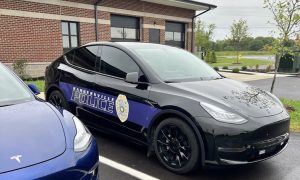
 News2 weeks ago
News2 weeks agoTesla police fleet saves nearly half a million in upkeep and repair costs
-
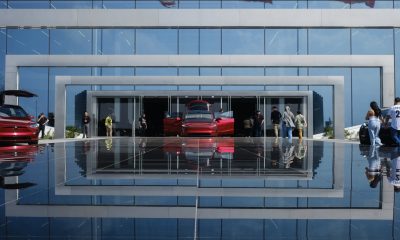
 Investor's Corner7 days ago
Investor's Corner7 days agoLIVE BLOG: Tesla (TSLA) Q1 2025 Company Update and earnings call

